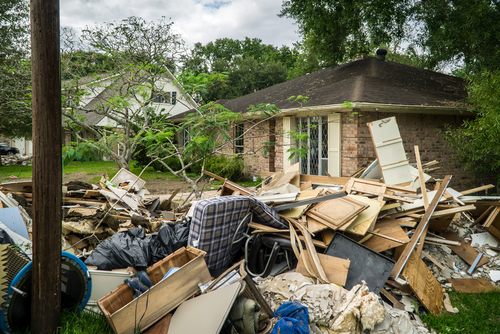The classification of your property damage as a “total loss” could have a major impact on your ability to recover compensation. Florida property owners deserve a fair classification of their damage under the law. However, determining what constitutes a total loss can be more complicated than it might initially appear.
Policyholders are Entitled to the Policy Limit
In property damage cases involving a total loss, Florida courts will look to the state’s statutory requirement known as the Valued Policy Law (VPL). Under this law, policyholders are entitled to certain rights in the event that their covered property is deemed a “total loss.” When property has suffered damage to the level of total loss, the VPL entitles policyholders to recover the full value of their policy limit. This is true regardless of whether or not there are other facts pertaining to the cost of property repairs or replacement. For example, imagine that a house was valued at, and insured for, $200,000. If that house suffered a total loss, the policyholder should be entitled to recover the full $200,000. This system is designed to help ensure that property insurance claims are resolved more efficiently in cases involving extreme damage. However, this system also leads to frequent disputes over what exactly constitutes a total loss.
Florida Uses The ‘Identity Test’
Your property does not need to be turned into dust for a total loss to have occurred. Florida courts use the “identity test” to assess the extent of the loss, and whether it qualifies as, “total.” A Florida appeals court reiterated the elements of the identity test in the 2007 case of State Farm Florida Ins. Co. v. Ondis. In that case, a homeowner was seeking recovery for extensive damage caused by Hurricane Ivan. The policyholder’s home sustained around $335,000 in damages from that hurricane. The policyholder, who was seeking damages for the total loss of the home, submitted evidence that stated that the cost to repair the property and bring it up to code would exceed the total value of the structure. The court agreed with the policyholder, and found the presented evidence sufficient to prove a total loss. According to the court, the identity test allowed for recovery for a total loss of a building, when:
- The property no longer retained its identity, or the specific characteristics that defined it as a structure; or
- The cost of restoration exceeds the total value of the property.
Contact Our Office Today
The experienced property insurance dispute lawyers at Geyer Fuxa Tyler can help you recover fair compensation for your damages. If you are having any difficulty reaching a resolution on your insurance claim, please call our office today at (954) 990-5251. We offer free initial legal consultations.





